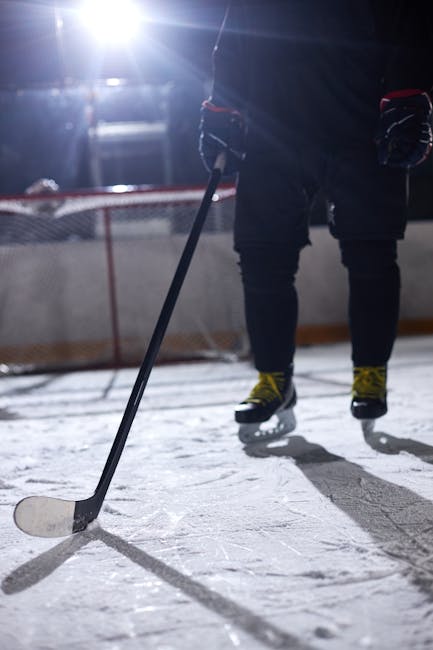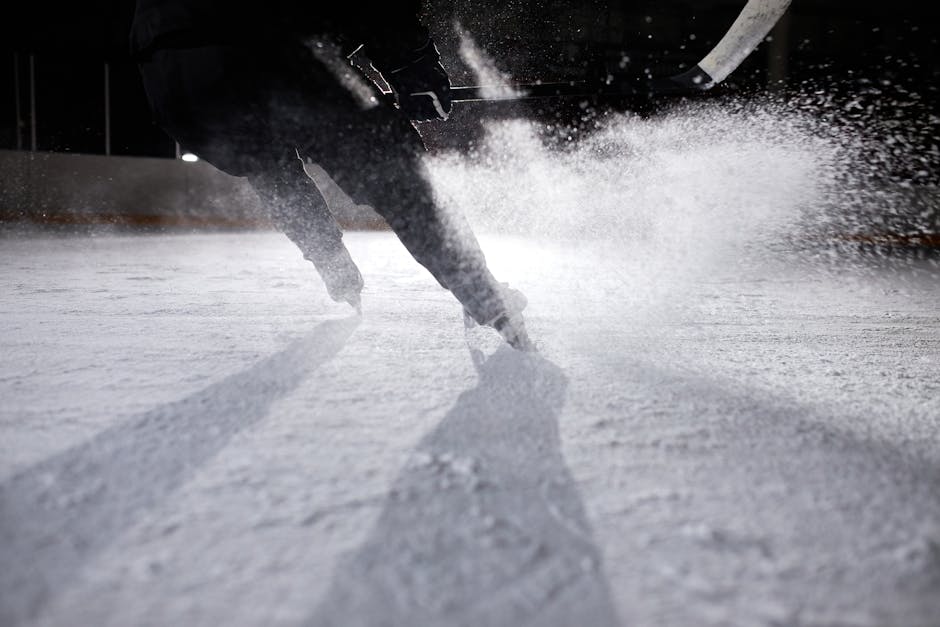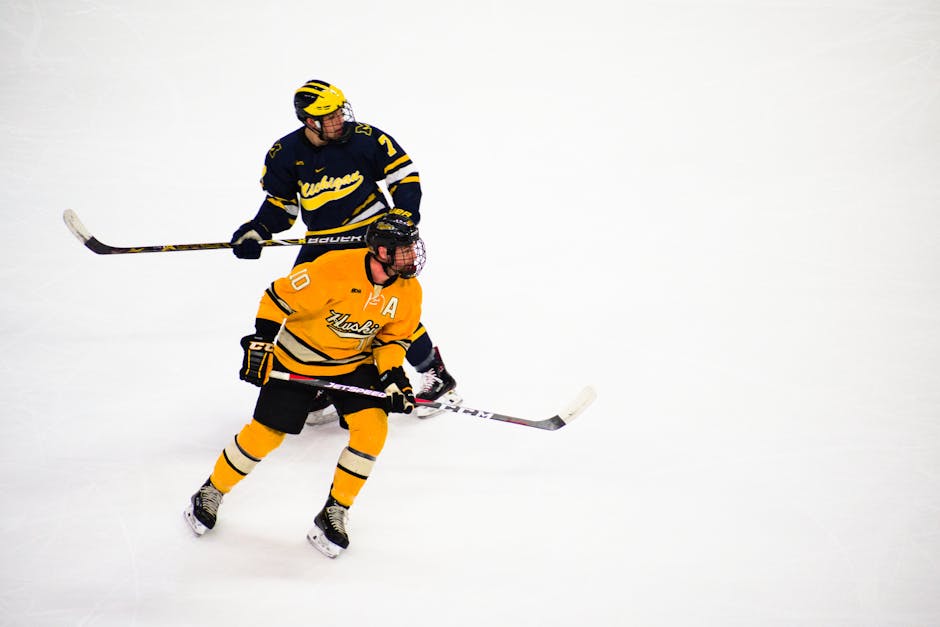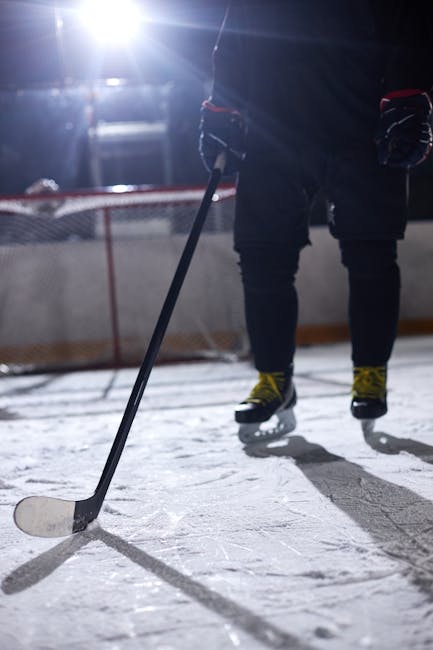Game Misconduct in Hockey: Rules, Penalties, and Impact on the Game
Game misconduct penalties in hockey are serious offenses that result in immediate ejection from the game. Unlike minor or major penalties, which result in a temporary removal from play, a game misconduct carries significant consequences both for the player and their team. Understanding the nuances of game misconducts is crucial for players, coaches, and fans alike. This article will delve into the intricacies of game misconduct penalties, explaining the rules, the various infractions that lead to them, and the broader impact they have on the game.

Understanding Game Misconduct Penalties
A game misconduct penalty is issued by a referee when a player commits a serious infraction that warrants immediate expulsion from the contest. These infractions often involve egregious behavior, dangerous play, or violations of the game’s spirit and ethical conduct. Unlike penalties that result in a player serving time in the penalty box, a game misconduct results in permanent removal from the game, with no possibility of returning even if the penalty expires. The player is ejected, and their team must play shorthanded for the remainder of the game.

Key Differences from Other Penalties
- Minor Penalties: These are less severe penalties, typically resulting in two minutes in the penalty box.
- Major Penalties: These are more serious infractions, usually resulting in five minutes in the penalty box.
- Game Misconducts: These are the most severe penalties, resulting in immediate ejection from the game.
- Match Penalties: Similar to game misconducts in terms of immediate ejection, but also carry further disciplinary action from the league.
Types of Infractions Leading to Game Misconducts
Several actions can lead to a game misconduct penalty. The specific infractions vary depending on the league (NHL, AHL, collegiate, etc.) and the referee’s judgment, but some common causes include:
- Fighting: While fighting is part of the culture of hockey, excessively violent or unsporting fights can result in game misconducts.
- Checking from Behind: This dangerous play often results in serious injury and is severely penalized.
- Boarding: This involves forcefully checking an opponent into the boards, often leading to injury and a game misconduct.
- Charging: This is a penalty for recklessly hitting an opponent who is not in a position to defend themselves.
- Spearing: Using the stick to intentionally poke or stab an opponent is a serious offense.
- Head Contact (Illegal Check to the Head): This is a major point of emphasis in modern hockey, and any deliberate or reckless hit to the head will almost certainly result in a game misconduct.
- Unsportsmanlike Conduct: This encompasses a wide range of behaviors, including verbal abuse of officials, taunting opponents, or displaying excessive aggression.
- Abuse of Officials: Directly insulting, threatening, or physically confronting officials is an automatic game misconduct.
- Leaving the Bench During a Fight: This infraction often results in a game misconduct for any player who leaves the bench during an altercation.
- Equipment Removal: Throwing equipment onto the ice is also grounds for a game misconduct.
Consequences of a Game Misconduct
The consequences of a game misconduct extend beyond simply missing the remainder of a game. Depending on the league, the player may face further disciplinary action, including:
- Suspension: This can range from a single game to multiple games, or even longer depending on the severity of the infraction and the player’s disciplinary history.
- Fines: The league might impose significant fines, especially for repeat offenders or particularly egregious offenses.
- Loss of playoff eligibility: In some cases, particularly severe game misconducts can result in the player being ineligible to participate in the playoffs.
- Reputational Damage: Game misconducts can damage a player’s reputation, both within the league and with fans.
Impact on the Team
A game misconduct not only impacts the penalized player but also has significant consequences for their team. The team must play shorthanded for the remainder of the game, which puts them at a considerable disadvantage. This can significantly impact the team’s chances of winning, and it puts extra pressure on the remaining players to compensate for the absent player.
Preventing Game Misconducts
The best way to avoid a game misconduct is to play within the rules and maintain a level of sportsmanship and respect for opponents and officials. Coaches can emphasize responsible play and the importance of emotional control. Players should focus on:
- Maintaining composure: Avoiding unnecessary confrontations and aggressive behavior is key.
- Playing clean and within the rules: Focusing on the game and adhering to the rules helps minimize the risk of penalties.
- Respecting officials: Showing respect towards the referees and linesmen is paramount.
- Learning from mistakes: Reviewing game footage and discussing potential improvements with coaches can help prevent future incidents.
Appealing a Game Misconduct
If a player believes that a game misconduct was issued unfairly, there are often procedures in place for appealing the penalty. The process typically involves submitting a formal appeal to the league office within a specific timeframe, providing evidence to support the claim. The league will review the appeal and make a decision based on the available information. The success of an appeal depends on the strength of the evidence and the league’s interpretation of the rules and the specific incident.
Conclusion
Game misconduct penalties in hockey are serious sanctions with wide-ranging implications for the player and their team. Understanding the rules surrounding game misconducts, the various actions that lead to them, and the potential consequences is crucial for everyone involved in the sport. By emphasizing sportsmanship, responsible play, and respect for the rules, players can significantly reduce the risk of receiving a game misconduct and contribute to a more positive and fair game experience for all.


